Search Results
Showing results 21 to 36 of 36
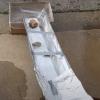
Build An Aqueduct
Source Institutions
In this activity, learners use the design thinking process to design and build their own aqueduct, or water bridge.
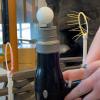
Bernoulli Obstacle Course
Source Institutions
In this activity, learners create their own obstacle course based on Bernoulli's Principle and try to get a floating ball from the start of their course to the finish line.

Horton Senses Something Small
Source Institutions
In this story time program, young learners listen to the Dr.
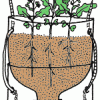
TerrAqua Investigation Column: What is the Land-Water Connection?
Source Institutions
In this investigation, learners plant seeds in a 2-liter bottle filled with soil that is connected to a water source below. Over the next few weeks, learners observe how the plants grow.
Math and Creativity Posters
Source Institutions
These math posters have questions written on them, such as: How many colors can you name in a minute? or How many seconds can you balance on one foot?
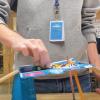
Build a Bridge
Source Institutions
In this activity, learners use design thinking to design and build their own bridge out of household materials including adhesives and/or connectors.
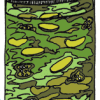
Kimchee Fermentation Chamber
Source Institutions
Learners make kimchee or sauerkraut, which is really just fermented cabbage, in a 2-liter plastic bottle.

The Desert Blooms!
Source Institutions
This activity attempts to clear up the common misconception that deserts are always hot, totally dry, and uninhabitable.
Animal Math Posters
Source Institutions
These math posters have questions written on them, such as: How fast can a cheetah run? or How long can a giant tortoise live? Post these around the room or leave them out for children to explore.
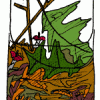
Decomposition Column
Source Institutions
In this activity, learners turn empty 2-liter bottles into a see-through compost container.

Thrill Ride
Source Institutions
In this activity, learners will build a roller coaster for a marble to run on using everyday household materials such as paper towel or toilet paper rolls, cups, boxes, books, buckets, chairs, etc.

Hungry as a Caterpillar
Source Institutions
In this indoor and outdoor activity, learners discover that insects grow and develop as do all living things, going through a process known as complete metamorphosis.

Zoo Calendar
Source Institutions
Use the Zoo Calendar (page 1 of PDF) to involve learners in interdisciplinary, whole language, and writing activities about ecological concepts.

Mini Zoetrope
Source Institutions
In this activity (posted on March 27, 2011), learners follow the steps to construct a mini zoetrope, a device that produces an illusion of action from a rapid succession of static pictures.

Invent a Plant
Source Institutions
In this activity, learners construct models of plants that are adapted to living under specific environmental conditions.

From the Internet to Outer Space
Source Institutions
In this activity, learners will use Google Sky to observe features of the night sky and share their observations.
